FORT HOOD, Texas - "What else can I be other than an American citizen, with a rich American heritage after having been born here, after serving my country here," said Killeen's first African-American mayor, Timothy L. Hancock at a Feb. 22, Black History Month observance here organized by the 49th Transportation Battalion, 15th Sustainment Brigade, 13th Sustainment Command (Expeditionary).
Hancock was the main guest speaker for this year's annual observance with the theme of "black history is American history," which Hancock said resembled his own personal beliefs.
Hancock spoke on black history in general and his own personal experiences in his home town of Tyler, Texas and in Killeen. His main message explained how the black community overcame obstacles to attain freedom, and how he personally used his freedom for the benefit of others.
He illustrated his points with a story about Jackie Robinson, the man attributed with breaking the color barrier in major league baseball after signing with the Brooklyn Dodgers in 1947. Robinson, who was stationed at Camp Hood as a second lieutenant during his time in the Army, was court-martialed on charges related to a situation in which he refused to move to the back of a bus after a white bus driver told him to do so.
Hancock and his wife, Maxine, own Arrow Trailways of Texas Bus Company, the same company involved in Robinson's bus incident.
"I used my freedom for what I think is best," Hancock said proudly. "Not only can I ride in the front of that bus, I can drive that bus, I can let you ride that bus, and I can go anywhere on that bus ... that I want to."
The mayor also spoke about the changes which occurred for blacks in the military through another story concerning a change of command ceremony he attended. As he entered the building where the reception was held, he saw three black colonels.
"In my day, you would not have seen that. Another surprise I had, I happened to see a black general [who] was standing there ... then at the same reception the general's father was there, who was retired two-star general Brooks."
Hancock was joined by other guests such as the New Hope Seventh Day Adventist Church Choir, who sang for the event, and Command Sgt. Maj. Kevin Stuart, whose recital of his poem "I Am Strong" brought loud applause and reactions from the audience.
"Through the strength of my convictions and the wealth of my abilities, today I'm a doctor, and I'm a dentist. I'm an entrepreneur and politician," Stuart said in his poem of the positions which blacks now hold in the community.
"I'm a soldier and a sailor, an airman and marine."
Six soldiers from various countries, states, and U.S. territories dressed in their native garb, also came forward to explain why they celebrate Black History Month as part of the observance.
Col. Glenn Grothe, chief of staff for 13th Sustainment Command (Expeditionary) presented the mayor and a representative from the guest choir with certificates of appreciation to close the event.
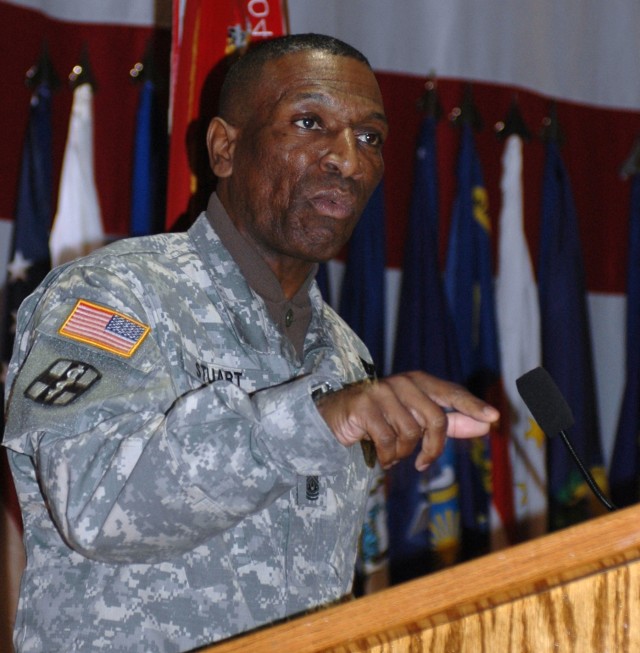
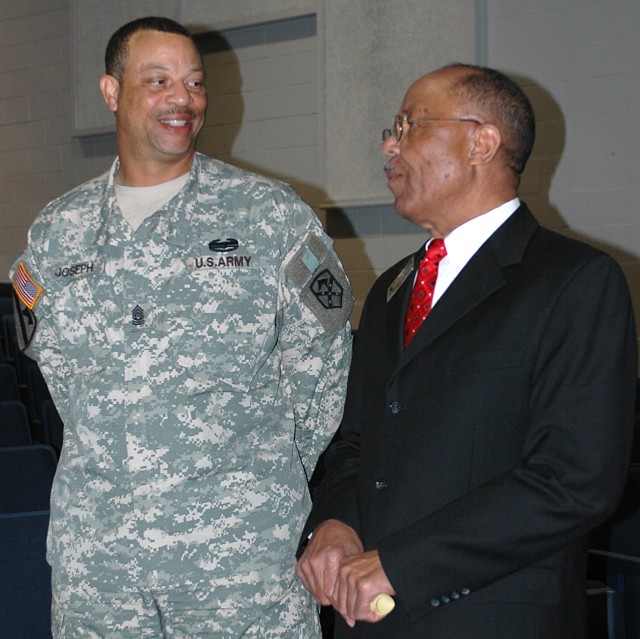
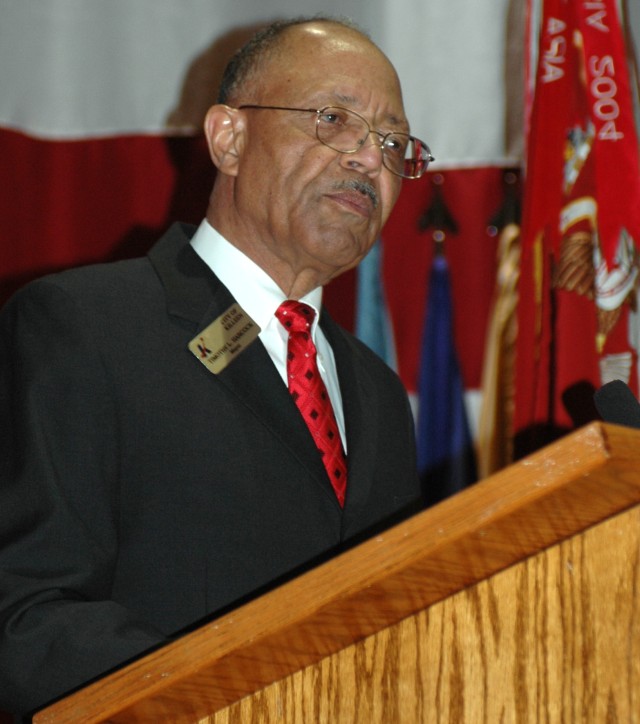
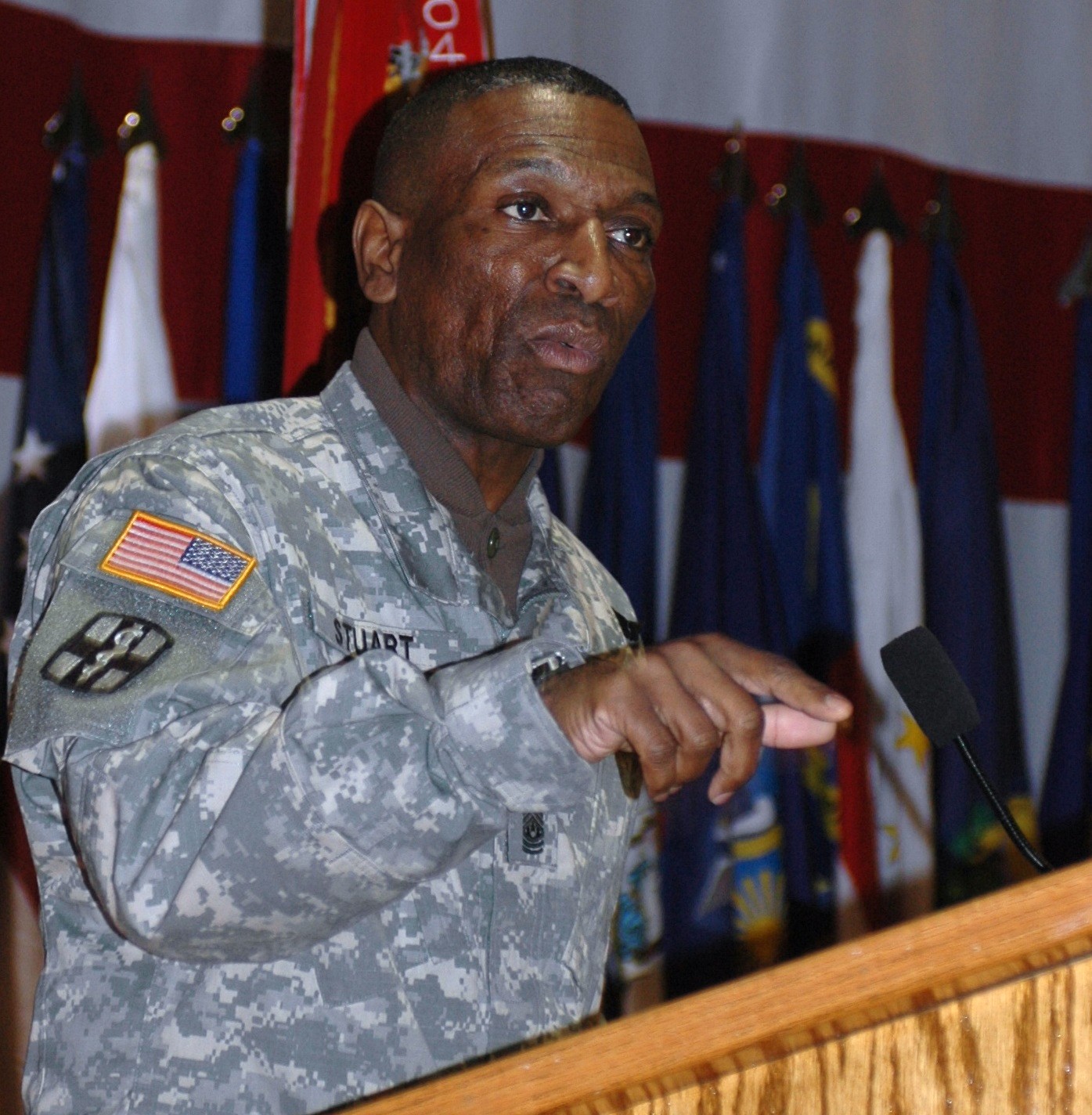
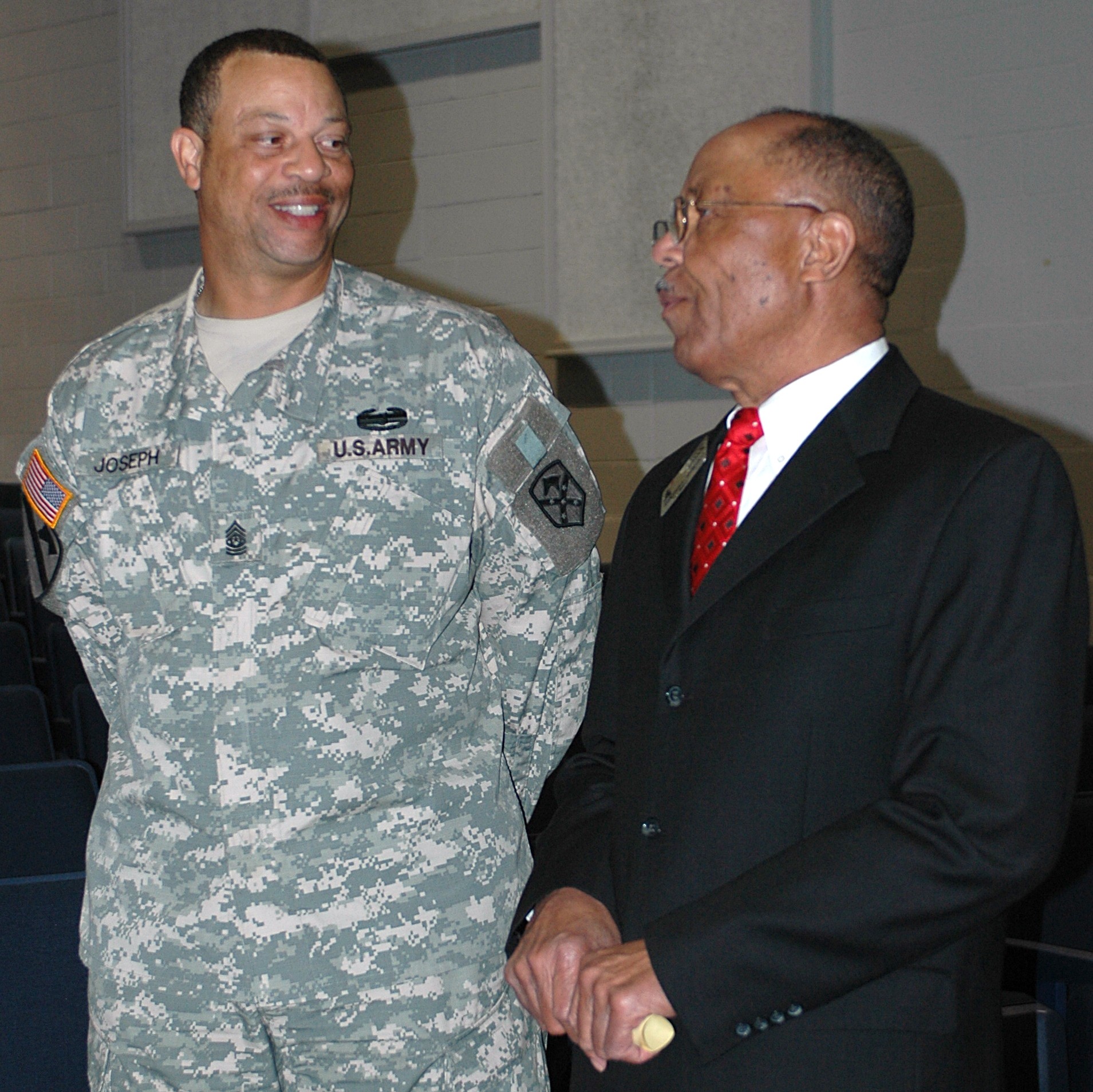
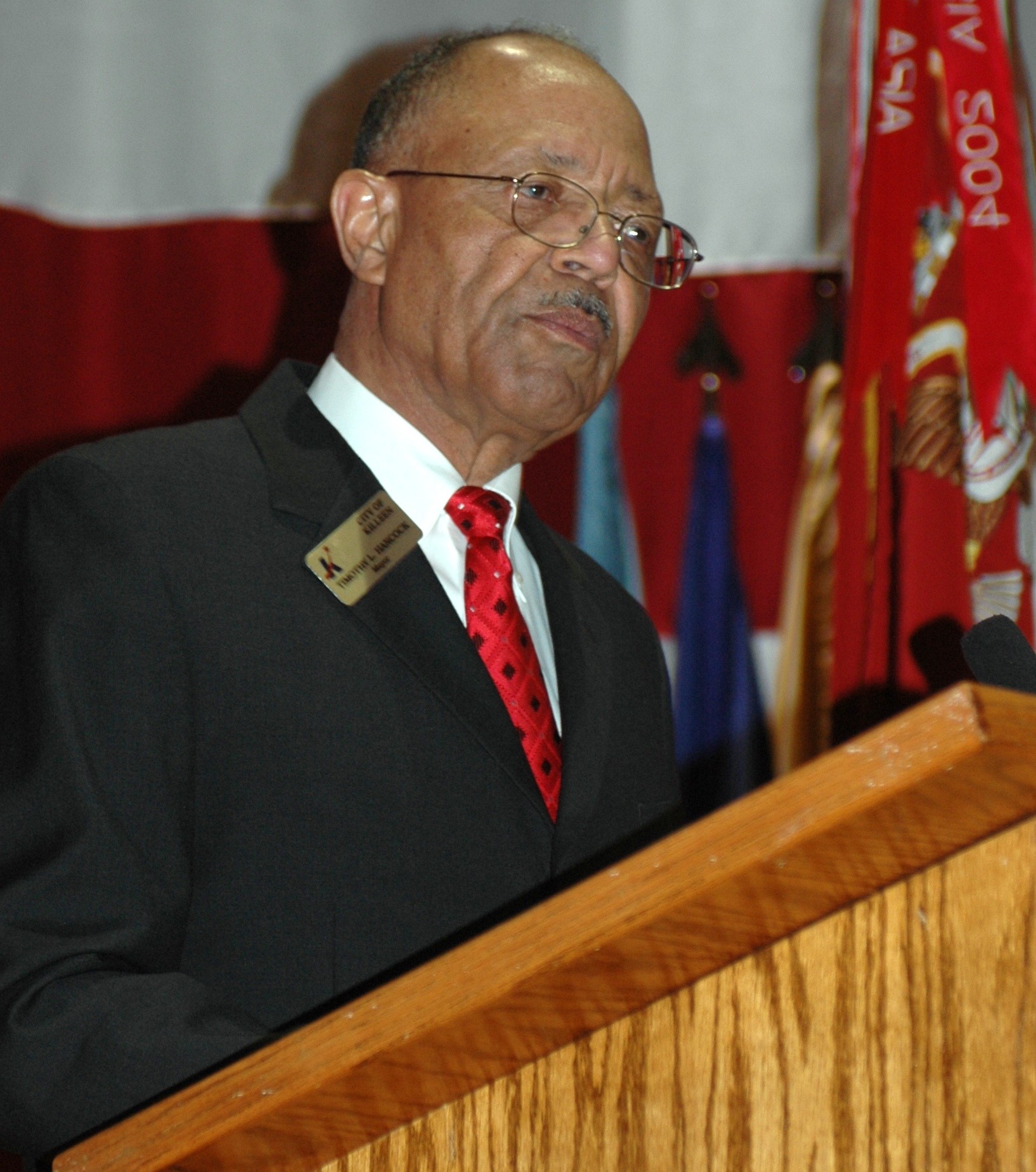
Social Sharing